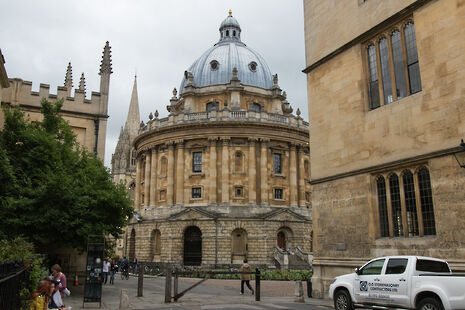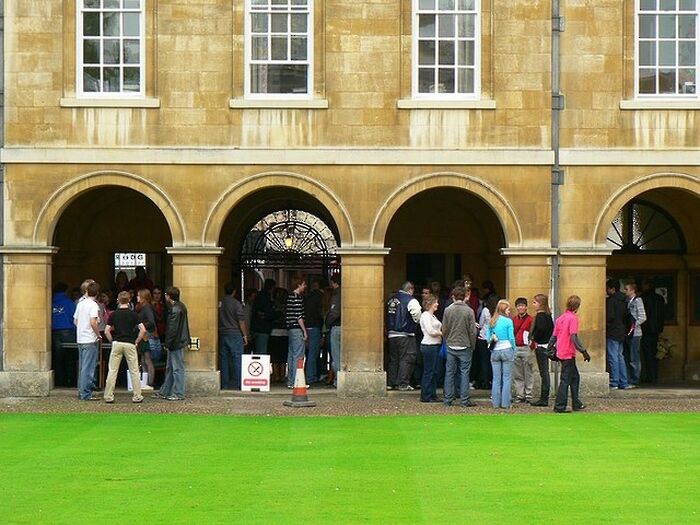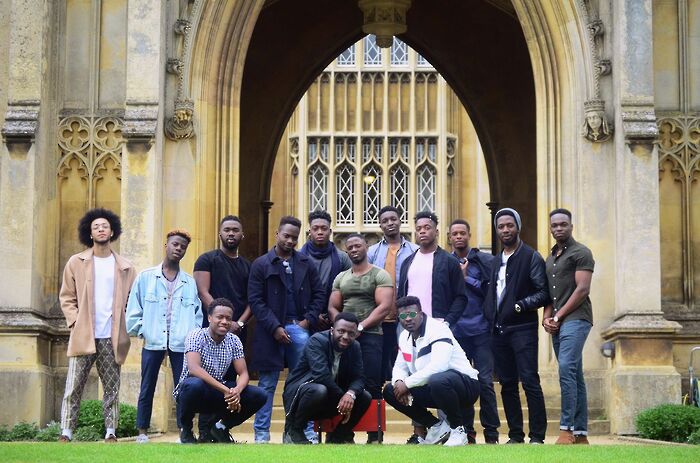Labour MP brands Oxbridge colleges ‘fiefdoms of entrenched privilege’
New data released by David Lammy MP shows that a quarter of Cambridge colleges made no offers to black students from 2010–2015

Labour MP David Lammy, the former higher education minister, has branded Oxford and Cambridge’s colleges as the “last bastions of the old school tie” after he revealed data which shows the proportion of offers extended to students from the top social classes increased in recent years.
Lammy’s findings focus on race and class disparities among the two universities’ undergraduate intake. His findings, which pertain to data for between 2010 and 2015, include:
- The proportion of Cambridge offers to applicants from the top two social classes rose from 79% to 81%
- Cambridge made more offers to applicants from four of the Home Counties than the whole of the North of England
- Throughout the period, on average a quarter of Cambridge colleges made no offers to black British applicants
- Emmanuel College made the highest proportion of offers to students from the top two social classes
- In 2015, 14 out of 29 Cambridge colleges did not make a single offer to a Pakistani applicant
The new statistics were labelled by Angela Rayner, the shadow secretary for education, as “damning evidence on the government’s failure to widen access to our most selective universities”.
The findings echo those of two Varsity reports from July, which found that 2016 was the first year Cambridge had ever accepted more black men than Old Etonians, and that London and the South East were expanding their dominance of undergraduate intake. Analysis showed that black applicants were accepted at roughly half the average rate for all ethnicities.
Cambridge’s undergraduate intake this October included the highest ever proportion of state school students, after overcoming a previous high in 2012.
The University defends its intake demographics as representative of students getting the top grades at A-level. This means that the pool of eligible students from some ethnicities and social backgrounds is much lower than overall national proportions.
In a tweet this morning, Lammy appeared to advocate for introduction of reduced offers grades for students from underrepresented and disadvantaged backgrounds, something which the colleges have previously ruled out.
8) It is clear that AAA at a state school in an area that doesn't perform well is much better than AAA at Eton. Oxbridge need to be clear
- David Lammy (@DavidLammy) 20 October 2017
Addressing the possibility of reduced offers in an interview with Varsity, published today, new vice-chancellor Stephen Toope said “If it were the case that the University wanted to move to any change in the admissions standards, that would have to be matched with very detailed processes to make sure that the people could succeed when here.”
Lammy, who acquired the data under the Freedom of Information act, said “Overall, the picture painted by this data is of two institutions that overwhelmingly draw their students from a privileged minority in the South of England and are complacent at best about taking steps to widen participation and access.”
The findings also reveal that between 2010 and 2015, 13 Oxford colleges did not make a single offer to a black A Level student. Lammy saved some of his strongest criticism for Oxford, after it initially refused to release information by college about racial intake, accusing them of publishing ethic access data by college only “begrudgingly”. The findings about Oxford’s social and geographic intake were similar to those for Cambridge. Only three Oxford colleges made an offer to a black A-level applicant every year from 2010–15.
Datasets released by Lammy confirm long-standing college access trends, with Trinity giving the most offers to independent school students (49%) during the period, with 30% of offers to students from comps. King’s, in contrast, made 47% of its offers to students from comps.
They also show the proportion of offers made per college to students from the two highest social classes rose during the period. Offers disproportionately went to applicants from NSSEC classes 1 and 2, with 81% of offers going to prospective students from those backgrounds. The 2011 census found that 31% of UK residents belonged to class 1 or 2, which are “Higher managerial and professional occupations” and “Lower managerial and professional occupations” respectively.
“This data clearly shows that a privileged background is still the key to getting through the Oxbridge admissions process. I am appalled to find that Oxbridge are actually moving backwards when it comes to socio-economic background,” Lammy said.
Lammy made a call for a series of changes to admissions processes, saying that he believed centralised admissions processes would address the shortcomings of the collegiate system.
“Whilst some individual colleges and tutors are taking steps to improve access,” he said, “in reality many Oxbridge colleges are still fiefdoms of entrenched privilege, the last bastions of the old school tie, with admission dependent on highly subjective interviews and the whims of academics recruiting in their own image. It is clear that many colleges will not change left to their own devices, so it is time to move away from an autonomous collegiate system that prevents any real progress and centralise the admissions process.”
A University of Cambridge spokesperson said: “The greatest barrier to participation at selective universities for students from disadvantaged backgrounds is low attainment at school. We assess the achievements of these students in their full context to ensure that students with great academic potential are identified,” saying that admissions decisions are based on academic considerations.
“Widening participation further will require government, schools, universities, charities, parents and students to work closely together. We will continue to work hard with all parties to raise aspirations and attainment to improve access to higher education,” they said.
 News / Colleges charge different rents for the same Castle Street accommodation2 March 2026
News / Colleges charge different rents for the same Castle Street accommodation2 March 2026 News / King’s hosts open iftar for Ramadan3 March 2026
News / King’s hosts open iftar for Ramadan3 March 2026 Theatre / Lunatics and leisure centres 4 March 2026
Theatre / Lunatics and leisure centres 4 March 2026 News / Angela Merkel among Cambridge honorary degree nominees27 February 2026
News / Angela Merkel among Cambridge honorary degree nominees27 February 2026 News / News in Brief: waterworks, wine woes, and workplace wins 1 March 2026
News / News in Brief: waterworks, wine woes, and workplace wins 1 March 2026










